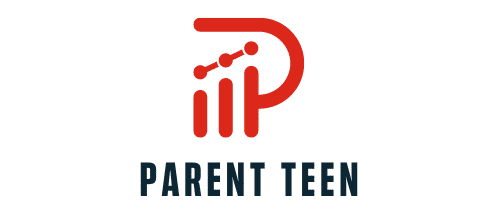What Are the Strategies for Small UK Publishers to Succeed in the Digital Age?

The digital age has presented countless opportunities for small UK publishers. With the advent of digital platforms and social media, content can be distributed more widely and efficiently than ever before. But how can you, as a publisher, navigate this digital landscape successfully? How can you ensure your content resonates with your readers, attracts new audiences, and drives revenue? This article will explore those strategies.
Embracing The Digital World
The migration of media consumption from print to digital platforms has necessitated a shift in how small publishers operate. This digital revolution has introduced new methods of content creation, distribution, and monetization. To stay relevant in this age, small publishers must evolve and adapt their strategies.
Also to see : What Are the Best Employee Well-Being Initiatives for UK Startups?
The digital world offers a unique advantage to you as a publisher – the ability to reach a global audience with a single click. The Internet has eliminated geographical boundaries, meaning your content can be read by people across the world, broadening your readership base.
However, this potential for global reach also comes with the challenge of increased competition. To keep ahead in this digital race, you need to offer content that’s not just engaging but also unique. This will help attract and retain your readers.
In the same genre : What Are the Key Legal Requirements for UK E-commerce Startups?
One way to create unique content is by leveraging data. In the digital age, data is the new oil. As a publisher, you have access to an array of data about your readers – their preferences, reading habits, engagement metrics, and more. Use this data to understand what your readers want and craft content accordingly.
Leveraging Social Media
Social media is a powerful tool for publishers in the digital age. Platforms such as Facebook, Instagram, and TikTok have become primary sources of news and entertainment for many people.
As a publisher, you can use these platforms to reach a wider audience and engage with your readers on a more personal level. Social media also allows you to share your content in formats that are more interactive and engaging than traditional text articles, such as videos, infographics, and live streams.
However, success on social media requires more than just posting content. You need to actively engage with your audience, respond to comments, and participate in discussions. This helps build a strong relationship with your audience, increasing their loyalty and likelihood to share your content with their network.
Remember, each social media platform has a different audience demographic and content preference. Understand these nuances and tailor your content and engagement strategy for each platform.
Capitalising on New Revenue Streams
In the past, publishers primarily relied on advertising and subscription revenue. Today, the digital age has opened up several other revenue streams.
One such revenue stream is content marketing. As a publisher, you could collaborate with brands to produce sponsored content. This content is typically presented as articles or stories that subtly promote the brand’s products or services. It’s a win-win situation – you earn revenue, and the brand gets publicity.
Another potential revenue source is hosting events. Events such as webinars, workshops, and conferences can be monetized through ticket sales, sponsorships, or even selling recordings post-event.
Remember, the key to successful monetization is to always prioritise your readers’ interests. Ensure that your monetization efforts do not compromise the quality or credibility of your content.
Focusing on Local Content
As a small publisher, one area where you can have an edge over larger publishers is local content. Large publishers often cater to a broad audience and may overlook local news and stories.
This is where you can step in. By focusing on local content, you can cater to an audience that’s often neglected by larger media. This not only helps you stand out but also builds a strong connection with your local community.
Local content also opens up potential partnerships with local businesses. You could collaborate with them for sponsored content, advertising, or even events.
Investing in Journalists
In the digital age, the role of journalists has transformed. They are no longer just news reporters but also content creators, social media managers, data analysts, and more.
Investing in training your journalists for these new roles is crucial. Equip them with the skills needed to create engaging digital content, use data for storytelling, and manage social media.
In addition, fostering a culture of innovation and experimentation can help your journalists come up with fresh and unique content ideas. Encourage them to try new formats, platforms, and storytelling techniques.
Remember, your journalists are your biggest asset. By investing in them, you are investing in the future of your publishing business.
In the digital age, the publishing landscape is constantly evolving. As a small publisher, your ability to adapt and innovate will determine your success. Embrace the digital world, leverage social media, explore new revenue streams, focus on local content, and invest in your journalists. This is your book to success in the digital age.
Exploring Affiliate Marketing
In the rapidly evolving digital economy, affiliate marketing has emerged as a robust revenue stream for small UK publishers. By partnering with a business or brand, publishers can earn a commission for every sale made through a referral link on their platform.
Affiliate marketing is not just about selling products. It can also be about promoting services, apps, or even online courses. The key is to choose affiliates that are relevant to your readers. For instance, a publisher focusing on local news could partner with local businesses for affiliate marketing, thereby promoting the local economy while earning revenue.
Moreover, affiliate marketing offers another advantage – it helps build trust with your audience. Younger audiences, in particular, appreciate when publishers transparently disclose affiliate links, seeing it as an ethical business approach.
However, it’s crucial to maintain balance. Too many affiliate links can overwhelm your readers and make your content appear insincere. Ensure that your content remains high-quality, engaging, and beneficial to your readers, with affiliate marketing as an added component, rather than the focal point.
While affiliate marketing can greatly contribute to your digital media business model, remember that it should complement your primary revenue streams, not replace them. Diversity in income sources is key in the volatile media industry.
Engaging with the Climate Change Narrative
Climate change is a global issue occupying a significant space in the news movement. It’s a topic that resonates with younger audiences, particularly those attuned to societal and environmental issues.
As a small publisher, incorporating climate change narratives into your content strategy can yield multiple benefits. By providing high-quality, researched, and impactful stories on climate change, you can attract a more conscious and engaged readership base.
This is not just about top stories on catastrophic events. It can include a broad range of content – from local stories on how climate change is affecting your community to informative articles on sustainable practices and green technology.
Working with local climate and environmental experts can add a layer of authenticity and depth to your stories. It also opens up opportunities for partnerships and collaborations, further broadening your reach.
Remember, the goal is to create a conversation around climate change, encouraging readers to engage, share, and take action.
Conclusion
Navigating the digital age as a small UK publisher can be challenging, but it’s also filled with opportunities. Leveraging social media, diversifying revenue streams, focusing on local news, capitalising on affiliate marketing, engaging with issues like climate change, and investing in your journalists are key strategies that can help you thrive in this digital economy.
Innovation is at the heart of the digital media industry. Continually experimenting with new formats, platforms, storytelling techniques, and business models will keep you ahead of the curve.
At the end of the day, remember that your readers are your greatest asset. Prioritise their interests, listen to their feedback and adapt accordingly. With a dedicated, engaged readership base, and a willingness to evolve and adapt, your publishing business will continue to prosper in the digital age.
